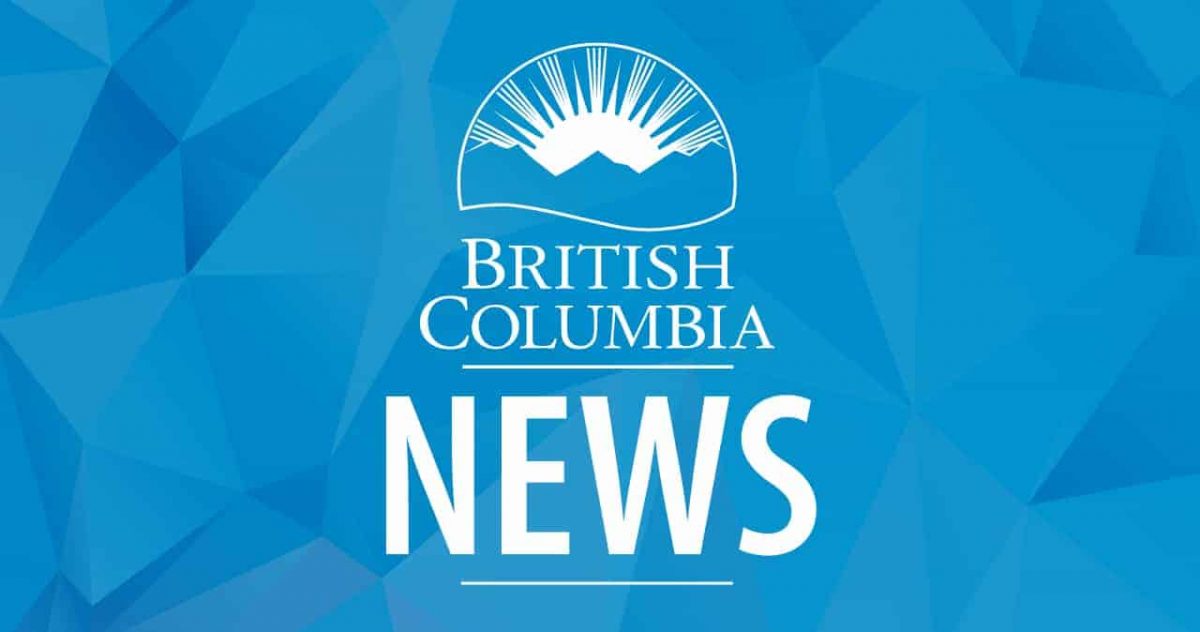
Province tackles climate change by reducing single-use plastics in tree planting
Communities around the Province will see less plastic in landfills after three million single-use plastic tree seedling wraps, which support 45 million seedlings, are eliminated from the tree-planting process in 2024.
Following a successful trial of plastic removal for the growth of pine and spruce seedlings within the Cariboo region, run by the Ministry of Forests’ BC Timber Sales, the Province will remove single-use plastic wraps for all pine, spruce and cedar tree seedlings. The 45 million plastic-free tree seedlings will support reforestation projects in every corner of the province. The elimination of the single-use plastic will be led by BC Timber Sales.
“The common thinking within tree planting has been that plastic is needed to support, grow and manage this many successful seedlings, but this project proves definitively that there is a better way,” said Bruce Ralston, Minister of Forests. “Work like this is fundamental in moving British Columbia toward a low-carbon future that does not rely on plastics and makes us leaders in the global fight against climate change. Removing one single-use plastic has a positive impact on our environment, but removing three million single-use plastics per year is a massive achievement.”
By 2030, it is estimated that as many as 18 million single-use plastic seedling wraps will be eliminated within B.C. by the wider forestry sector. The removal of single-use plastic is part of the Province’s CleanBC goals to reduce plastic waste and create a sustainable, circular economy that fights climate change.
“PRT Growing Services Ltd. is proud to be part of the Province of British Columbia’s No Wrap initiative for forest seedlings that will reduce manual, physical demands on our employees in addition to a valuable contribution toward the Province’s Climate Action plan,” said Randy Fournier, chief executive officer, PRT Growing Services Ltd. “We applaud the Province’s leadership in undertaking an initiative to the benefit of our employees and our commitment to the environment in strong alignment with the corporate values of PRT.”
Throughout the province, government is also partnering with the forestry industry and academic institutions to create better ways of using B.C.’s renewable resources.
One of these partnerships was for a one-month pilot project between the University of Northern British Columbia and Freya Logging, facilitated by BC Timber Sales. Students at the university had their hot water generated from cardboard materials recycled from tree-planting projects in northern B.C. These materials fed the university’s bioenergy-generation facilities. The cardboard came from boxes used to deliver tree seedlings to tree-planting projects, which was then turned into chips by Freya Logging.
With more forestry workers soon having access to plastic-free seedlings for tree-planting projects around the province, BC Timber Sales reforestation projects are leading the way in creating a cleaner tree-planting process that will keep waste out of landfills and will be at the front of the fight against climate change.
Quick Facts:
- Three million single-use plastic seedling wraps are equal to approximately two million metres of single-use plastic eliminated in 2024 alone.
- A single plastic wrap is used to bundle seedlings into groupings of 10, 15 or 20, depending on the tree species.
- BC Timber Sales has replanted nearly one billion trees to date.
Learn More:
To learn about BC Timber Sales’ role in managing B.C.’s timber and generating economic prosperity around the province, visit:
https://www2.gov.bc.ca/gov/content/industry/forestry/bc-timber-sales
To learn about the Province’s CleanBC commitments, visit: https://cleanbc.gov.bc.ca/
To learn about the University of Northern British Columbia’s bioenergy facilities, visit: https://www2.unbc.ca/green/energy/bioenergy-plant
